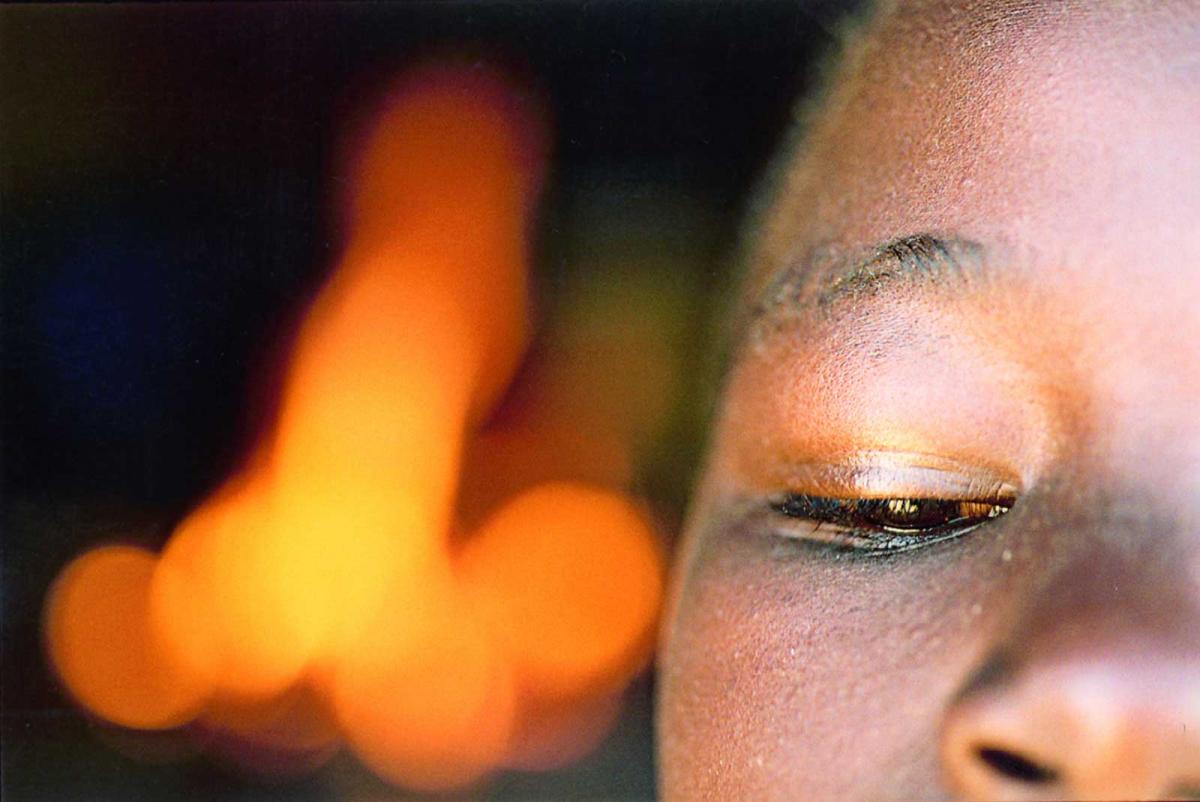Please listen with headphones for the best experience. When you hear Rutendo's story, think about whether any parts of her life – her feelings and experiences – remind you of your own life or someone you know. Has something similar happened to you or someone close to you? Pay attention!

Rutendo from Zimbabwe was deprived of all her rights when she was married off at just 12 years old.
Download the audio file to your device.
“When I was in first grade, my father died. Our life became very difficult. We often went whole days with no food”. The children at school started to bully me and called me poor”.
It’s Rutendo who says this. She is from Zimbabwe, and when this happened Rutendo was only seven years old. And it was the first time that she experienced that her rights where seriously violated, when she couldn’t stay in her school.
“We had been a happy family before and even if we were poor, I was able to go to school”, Rutendo continues. “But when my father died, we could no longer pay my school fees, and the teacher sent me home. This was repeated every year. I cried every morning when I saw my friends going to school.”
At the age of ten Rutendo was told to move to her aunt’s place. There, she had to sweep, wash, cook and fetch water and firewood from morning to night.
Then, when she was twelve, Rutendo got some chocking news. The husband of her auntie had decided he wanted to marry Rutendo as his second wife. The man, Rutendo’s own uncle, had already asked Rutendo’s mother and she had agreed.
“My aunt told me: ‘From now on you have to do everything your uncle tells you’”, Rutendo remembers. “I just couldn’t understand that my mother could agree to this. I cried every day and thought about killing myself”.
“When I asked my mother why she let this happen, she also cried. She said, she couldn’t say no, because the man was paying the school fees for my three younger siblings since a couple of years. I understood that that was also a way for him to get to me”.
Rutendo’s best friend, Precious, told her to run away and report the man to the police, that it’s illegal to marry children in Zimbabwe. But Rutendo answered that she didn’t dare – she had nowhere to go.
“When I was thirteen”, Rutendo remembers, “my uncle forced himself on me, and by the time I was fifteen I was already pregnant with my second child”.
Now, Rutendo had no rights left and her life was very difficult. But finally, when her uncle took a third wife, Rutendo’s grandmother had had enough. She came and fetched her granddaughter and took her home. Since then, Rutendo and her babies have lived at the grandparents’ house.
“It is so painful seeing my friends going to school, while I have to take care of my sons and do piecework in other peoples’ homes”, says Rutendo. “But now, I’ve been able to attend a seamstress course, so things are getting better. I received help with a sewing machine and some fabric, so I can work as a dressmaker”.
Rutendo’s long-time dream is to go back to school and one day become a lawyer: She wants to help other children who have had their rights taken away as she had.
“I wish I had reported my uncle to the police, says Rutendo. “Maybe that would have saved me from the marriage. But I’m the one who provides for my family now, and I am sending both my boys to school. That is the most important thing for me”.